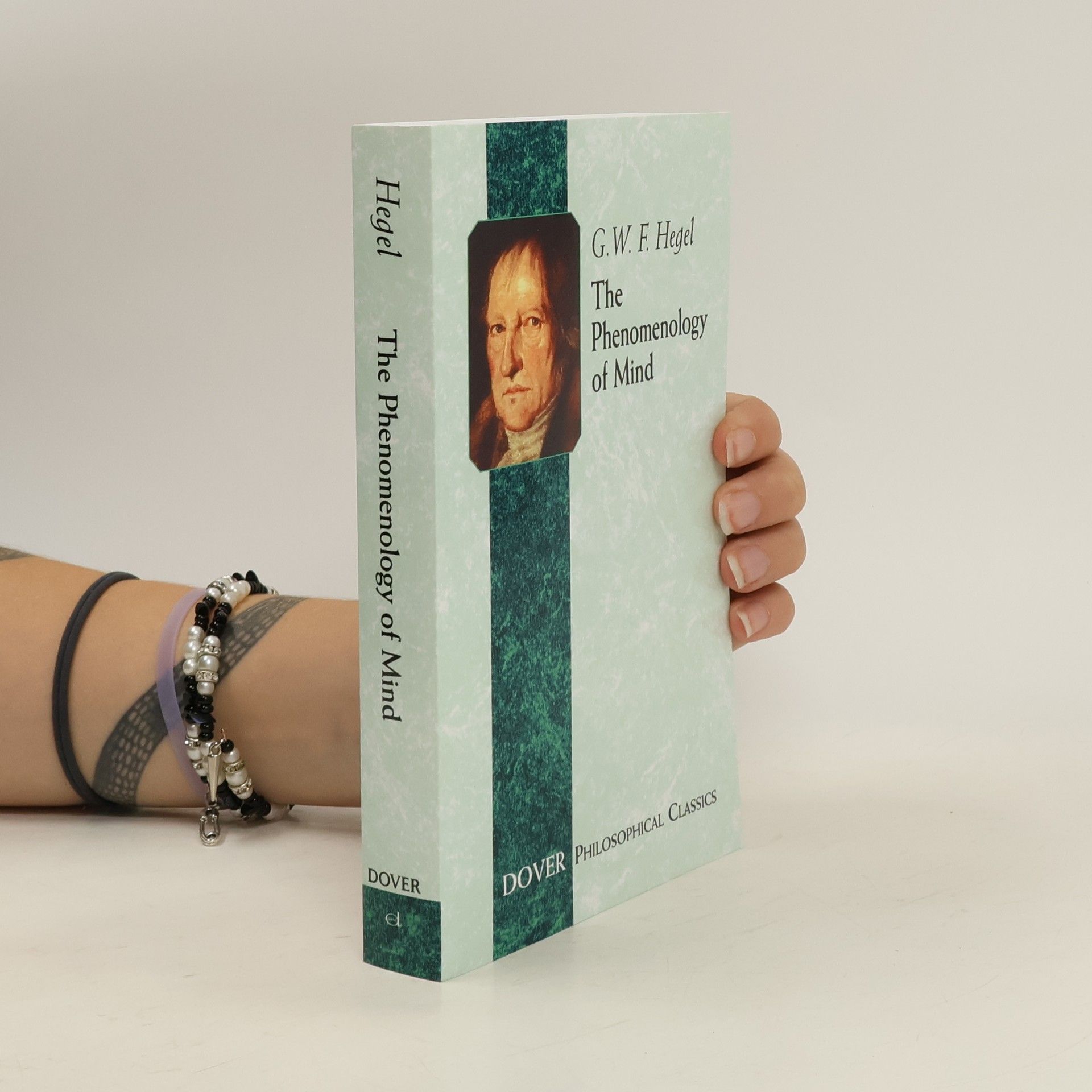The phenomenology of mind
- 528 pages
- 19 hours of reading
In The Phenomenology of Mind, idealist philosopher Georg Hegel (1770–1831) defied the traditional epistemological distinction of objective from subjective and developed his own dialectical alternative. Remarkable for the breadth and profundity of its philosophical insights, this work combines psychology, logic, moral philosophy, and history to form a comprehensive view that encompasses all forms of civilization. Its three divisions consist of the subjective mind (dealing with anthropology and psychology), the objective mind (concerning philosophical issues of law and morals), and the absolute mind (covering fine arts, religion, and philosophy).
